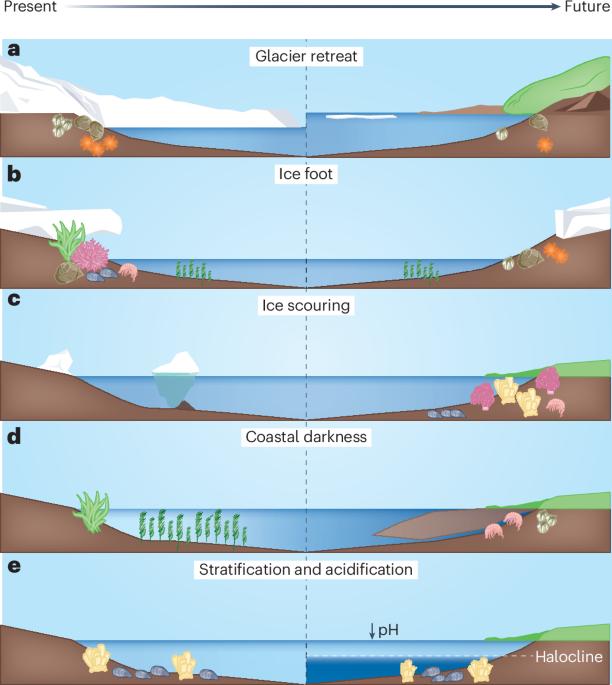北极海岸线上出现的新风险
IF 27.1
1区 地球科学
Q1 ENVIRONMENTAL SCIENCES
引用次数: 0
摘要
全球近三分之一的海岸线位于北极,由于气候变化,该地区正在经历一些最迅速的变暖和重大的环境变化。虽然北极研究主要集中在陆地和开放海洋系统,但现在迫切需要关注与不断变化的沿海生态系统相关的独特挑战。本文章由计算机程序翻译,如有差异,请以英文原文为准。

Emerging risks along Arctic coastlines
Nearly one-third of the global shoreline is in the Arctic, a region undergoing some of the most rapid warming and substantial environmental transitions due to climate change. While Arctic research has largely focused on terrestrial and open-ocean systems, there is now an urgent need to focus on the unique challenges associated with changing coastal ecosystems.
求助全文
通过发布文献求助,成功后即可免费获取论文全文。
去求助
来源期刊

Nature Climate Change
ENVIRONMENTAL SCIENCES-METEOROLOGY & ATMOSPHERIC SCIENCES
CiteScore
40.30
自引率
1.60%
发文量
267
审稿时长
4-8 weeks
期刊介绍:
Nature Climate Change is dedicated to addressing the scientific challenge of understanding Earth's changing climate and its societal implications. As a monthly journal, it publishes significant and cutting-edge research on the nature, causes, and impacts of global climate change, as well as its implications for the economy, policy, and the world at large.
The journal publishes original research spanning the natural and social sciences, synthesizing interdisciplinary research to provide a comprehensive understanding of climate change. It upholds the high standards set by all Nature-branded journals, ensuring top-tier original research through a fair and rigorous review process, broad readership access, high standards of copy editing and production, rapid publication, and independence from academic societies and other vested interests.
Nature Climate Change serves as a platform for discussion among experts, publishing opinion, analysis, and review articles. It also features Research Highlights to highlight important developments in the field and original reporting from renowned science journalists in the form of feature articles.
Topics covered in the journal include adaptation, atmospheric science, ecology, economics, energy, impacts and vulnerability, mitigation, oceanography, policy, sociology, and sustainability, among others.
 求助内容:
求助内容: 应助结果提醒方式:
应助结果提醒方式:


